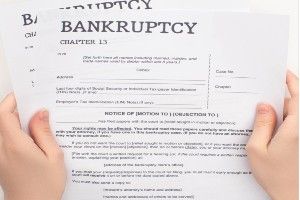 Bankruptcy Laws
Bankruptcy Laws
The COVID-19 pandemic brought a lot of changes throughout 2020 and many are expected to continue into 2021 and beyond. Although there were no significant changes to the bankruptcy process throughout the year, some financial experts see changes in bankruptcy law on the horizon. And they believe that’s a good thing.
Many people facing financial challenges due to the COVID-19 relied on unemployment and the stimulus support offered by states and the federal government. Others benefited from a temporary halt to debt obligations. Student loans were a great example of this. People unable to afford their student loan payments still have the option of putting those payments on hold due to the pandemic.
But the majority of protections in place as a result of the pandemic are only temporary. Even those extended into 2021 will eventually expire.
Not to mention that unemployment and other benefits provided are usually just a fraction of what someone was earning before the pandemic. This means people are paying the bare minimum on their debt obligations if they’re even able to manage that. Even as things transition back to normal and someone is lucky enough to have work to return to, making a dent in accumulated debt is no easy task.
Aggressive Debt Collection Efforts Are Ahead
Financial experts expect a wave of foreclosures, evictions, repossessions, and collection actions throughout 2021 and possibly into 2022.
For many, the way to avoid these problems or turn things around is filing for bankruptcy. Bankruptcy provides a fresh start and offers relief from collection efforts. But for many, the bankruptcy system as it is today has too many obstacles and doesn’t offer the immediate relief people need.
Changes in Bankruptcy Laws Could Make Filing More Affordable
One of the biggest challenges for those considering bankruptcy is paying for representation from an attorney.
Although a bankruptcy attorney is not required to file on your behalf, the process is complicated, and going it alone often leads to errors. And when you’re dealing with bankruptcy, errors are too risky. Even a simple error can lead to the dismissal of your case. For some people, an error leads to fraud accusations. Working with an attorney is well worth the investment. But unfortunately, if you’re strapped for cash and considering bankruptcy, it’s understandable why you wouldn’t have that money to invest.
On top of the cost of filing for bankruptcy, there’s also the hassle. There’s a lot of paperwork associated with filing and it takes a significant amount of time to complete and submit. For someone just returning to work or searching for a job during or just after the pandemic, this is time they don’t have.
Add to those issues the fact that bankruptcy does very little for certain types of debt. Bankruptcy doesn’t eliminate certain types of debt, including:
- Most student loan debt
- Most tax debts
- Court-ordered payments like child or spousal support
Assets might also be at risk when you file for bankruptcy. So as helpful as it can be, bankruptcy might not be enough. Especially for people dealing with pandemic-specific debt and financial issues.
Talk of Changes in Laws is Already Underway
Lawmakers have proposed changes that could make bankruptcy more helpful to those dealing with COVID financial stress and 2021 could mean changes could be on tap that would make filing for bankruptcy a viable option for those affected. A wholesale reform of the bankruptcy system would correct a number of the challenges people face when filing for bankruptcy.
The current proposal would give consumers the tools needed to address their financial obligations, including student loan debt and more. It would allow renters to remain in their homes without having to catch up on their unpaid rent payments. And it would make the filing process more affordable.
Congress has a limited amount of time to act on the proposal. However, many of the strategies put in place to help people struggling in 2020 have been extended for the foreseeable future. The sooner updates are made to the bankruptcy laws, though, the better off people will be as things transition back to normal.
If you have questions about potential changes on tap to bankruptcy laws or you would like to discuss whether or not you should consider filing, contact the Law Office of Robert M. Geller at 813-254-5696 to schedule a free consultation.







 Bankruptcy Laws
Bankruptcy Laws



















![Signs That You May Need to File Bankruptcy [Infographic]](https://djml3wkzi26ea.cloudfront.net/wp-content/uploads/2021/01/signs-chap7-v-chap13.jpg)
![How To File for Bankruptcy [Infographic]](https://djml3wkzi26ea.cloudfront.net/wp-content/uploads/2020/07/bankruptcy-steps-infographic-web.jpg)










